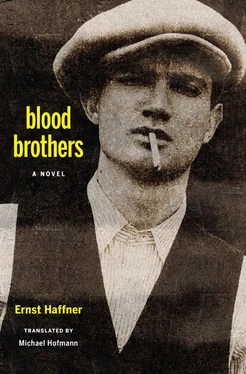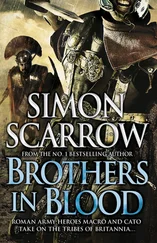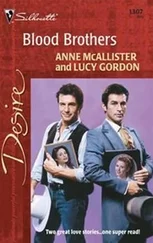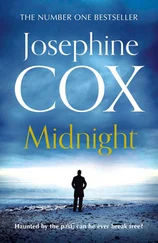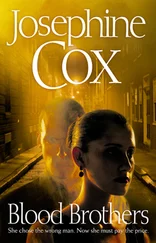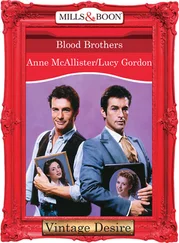The icy wind drills deeper and deeper into his clothes, bites under the strips of material wound round his trunk. The body hanging there, stock still, loses its flexibility, becomes numb. Willi can no longer feel his hands cramping in their handholds, he can no longer move his fingers. He can’t even feel himself hanging on the axle. All he feels is his body hurtling along at incredible speed, as though shot from a gun. He feels the occasional dull thump of a stone hitting him, but it’s not a pain as such. He is released from his physical self, from time and space. How long has he been hanging like this? Is it one hour, is it four?
From the pitch of the wind he can tell that the train is slowing down. He adjusts his head protection a little: light and shade hurtle past, then the train clatters over points. They are entering a big station. Willi takes advantage of the few minutes they are stopped to move his limbs as much as possible in the constricted space. He alters his position. By leaning against a box under the carriage, he gets into a sort of seated position that allows him to shift his limbs around slightly while they are moving. He peers through the narrow chink between the carriage and the platform. Nowhere is the name of the place, and he doesn’t hear it called out either. Nowhere in his limited field of vision a clock. Only legs, legs that won’t tell him one thing or the other. “All aboard …!” The train slips out, and quickly and ravenously chews into a racing speed.
But lest you think things can’t get any worse, Willi Kludas … Lest you think it’s a straightforward matter, cheating the railway of the price of a Cologne — Berlin ticket … you’ve got another think coming! What prompted you to lay into your well-intentioned educators, and then duck out of the punishment that was coming to you? Punishment? Hear that? Punishment? Yes, indeed. It’ll catch up with you here, under the chasing express. Here. A rigid lump clinging on for dear life to still-colder iron! At last the resistance of your thick skull is broken. Cry, howl in the din. No one will ever hear you, not even the people sitting a few feet away on upholstered benches. Your desire for freedom, your longing to grope a girl in a passageway, to walk through the lit-up streets at night as a free man, not to be a youth anymore, cuffed with impunity by anyone with half a mind to. All those desires that a careful education tried to repress in you, to make you a person after its own liking, you now must pay for with the price of this night in which death will not shrink from your side, not for a second!
The train rumbles over more points, and stops reluctantly at a signal. A child leans out of a carriage window and a joyful treble calls out into the morning: “Mama … we’re almost in Berlin!” The child’s voice breaking the silence, the word “Berlin” … together they mobilize the last resources in Willi Kludas so that he can crawl away from under the carriage. He collapses among some piles of wooden sleepers. The train moves off with a jerk and is soon gone. Willi bestirs himself. He can’t stay here. Over there are long lines of empty carriages on dead tracks. That’s where he has to get himself to. He can’t walk upright. Crawling and slithering like a stoned dog, Willi moves in the direction of the carriages. On the way is a barrel of rainwater. Water, water for his parched throat! It takes infinite effort to pull himself up at a carriage, to heave aside the door, to haul himself into the wagon, and finally to slide the door shut. Almost instantly, Willi slumps into wet straw that has been put there for a horse transport.
Late in the afternoon, as floodlights again brighten the sidings, Willi Kludas awakens to the torments of hunger and thirst. The awareness of having got through the ghastly night helps him overcome the pain in his bones. In the darkness of the wagon he gets undressed. He strips off the bandages that have served him well, knocks some of the dirt off his trousers and anorak, and pulls his things on right way round. He wipes his boots with handfuls of straw. Then he cautiously pushes the door open and peers out. No one there. In the dim light of distant lamps he studies his reflection. Good God! In spite of the head protection, his whole face is coated with a thick layer of grime. Carefully Willi crawls up to the water barrel again, and scrubs face and hands with water and grit. Another look in the mirror tells him that he isn’t clean, but at least he’s not so strikingly dirty that he will draw attention to himself when he’s among people again.
Now, the thing is to get off the railway terrain unobserved. Past the signal boxes, the railwaymen’s quarters. Any shadow might harbor a railway official. Slithering and crawling, Willi crosses the rails, then he has to pass a signal box. He can clearly make out a couple of officials in the room, green and red lights flashing on and off. Past them. Now up a steep embankment, a careful straddle of a barbed wire fence, and he’s all alone on an empty footpath. A passerby tells him where to catch a tram into the city.
Berlin, Berlin … The name sounds like music to his ears. As if Berlin were a laid table and a soft bed waiting for Willi Kludas. He’s got two cigarettes left, and twenty-five pfennigs. The first cigarette is lit. After the first deep puff, he almost moans with delight. Ah, cigarettes are something else. He contemplates jogging to the tram stop. But his aching bones refuse any fresh abuse. So he walks on.
It’s about half past six when Willi gets off the tram in Müllerstrasse. He wants to look up a school chum. Maybe his mum will let Willi spend a night there. It’s three years since Willi was last in Berlin. Pray to God that Otto Pageis is still living in Müllerstrasse. What was the number again? Here, this is the building, surely. And there’s the greengrocer’s cellar where they cadged bruised apples and pears when they were kids. Second yard, fourth floor, middle apartment, that’s Otto’s place, isn’t it? But now he sees the name “Kowalski” on a piece of card. All the same, Willi knocks. A slatternly, highly pregnant woman answers. “Pageis … Pageis, yeah, there were people living here by that name. But they left. Thing is, she kept bringing so many gentlemen home, and the landlord wouldn’t stand for it. And then they took Otto, the boy, and stuck him in welfare … yeah, that’s what happened.” “So, Otto’s in welfare … thanks ever so much, ma’am …” Otto Pageis was the only person in Berlin that Willi knew to look up. And now he’s in some institution himself, dreaming of Berlin …
Downstairs at the baker’s Willi buys rolls with his last twenty pfennigs, and scarfs them down. Where’ll he go for the night? Hard to answer. He can’t run around much more, that’s for certain. He sees nothing of the bustle of Müllerstrasse as he staggers on. He isn’t drawn to the lights at the northern end of Friedrichstrasse either. Willi turns off, and wanders along the River Spree. It’s half past nine already. Should he go to the Tiergarten? He can feel the cold settling in his bones. He can’t go on much longer.
At Kronprinzen Ufer, he comes upon a sandbox marked “BATG 2.” It’s half full. Willi climbs into it, and shuts the heavy lid over his head. He smokes his last cigarette, then he burrows down into the wet sand. The great and compassionate city of Berlin has afforded a bed for Willi Kludas …
ULLI IS THE BOSSof a gang that’s allied to the Blood Brothers, and it’s his birthday. He’s come of age, twenty-one today. Which means that remand schools and borstals have lost all their terrors so far as he’s concerned. A great and long-awaited experience, worthy of a great celebration. Which is scheduled for tonight. Ulli has extended invitations to all the Blood Brothers. Starting at eleven o’clock, at intervals of fifteen minutes and in groups of three, the Blood Brothers are to wait at the corner of Koloniestrasse and 80th Street, Section 2 (provisional). There they will be picked up by a boy and taken to the festive premises. No more than three at a time, so that the police don’t get interested. The rest of the lads are to bide their time in a doorway on Koloniestrasse till it’s their turn.
Читать дальше
